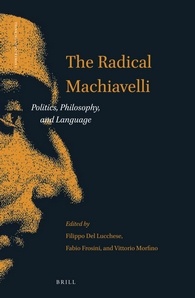 27 September 2022: I have a forthcoming article in the next issue of Polity: “A Government of Creditors: Machiavelli on Genoa, the Bank of San Giorgio, and the Financial Oligarchy.”
27 September 2022: I have a forthcoming article in the next issue of Polity: “A Government of Creditors: Machiavelli on Genoa, the Bank of San Giorgio, and the Financial Oligarchy.”
In this piece, I address a problem in Machiavelli’s political theory, namely the relation between credit, finance, and political power. There are few places in Machiavelli’s work where he writes explicitly about these issues, but one of them is chapter 29 of book 8 of the Florentine Histories. There, Machiavelli heaps praise on a curious institution: the Bank of Saint George (Casa di San Giorgio). A creditor association and also the oldest chartered bank in the world, San Giorgio owned Genoa’s public debt. In return, the creditor association exercised a striking degree of fiscal, judicial, political, and even military power.
The political power of creditors is often regarded as a distinctive feature of the contemporary neoliberal era and a source of much of its discontent. But the history of Genoa shows that the relation between credit and political power has a much longer trajectory, and it is one on which Machiavelli commented.
So if Machiavelli was a committed republican–why did he offer such a glowing portrayal on what is an undeniably oligarchic institution that ran the city of Genoa in the fifteenth century? This is the question my article asks, and to address it, I combine a textual analysis with a deep-dive into early modern fiscal policy and taxation.






